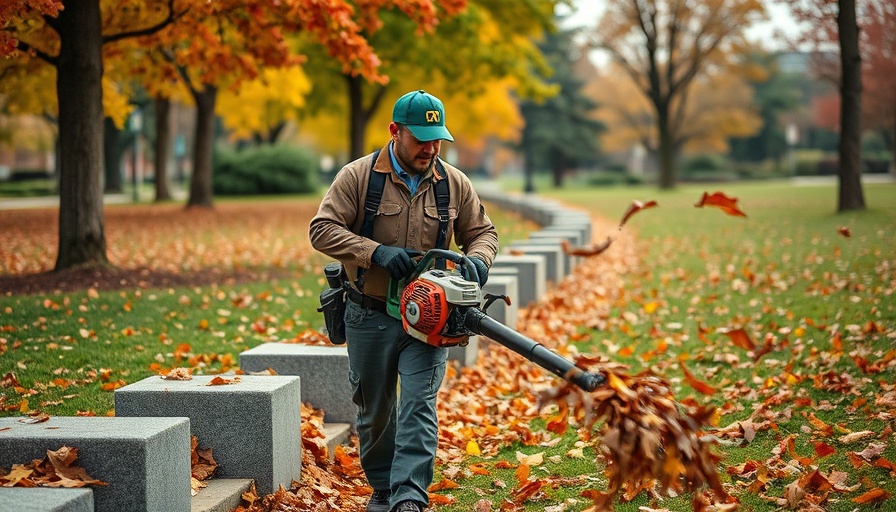
Cambridge Takes Steps to Protect Air Quality and Residents' Health
In a decisive move towards sustainability, Cambridge, Massachusetts, has officially banned gas-powered leaf blowers in an effort to enhance public health and environmental conditions. This ordinance went into effect on March 15, 2025, echoing the growing wave of cities committed to reducing pollution and noise pollution caused by traditional landscaping tools.
Understanding the Impact of Leaf Blowers
Gas-powered leaf blowers are notorious for their high noise levels and harmful emissions. According to a 2021 report by the California Air Resources Board, operating a gas-powered leaf blower for just one hour can emit as much pollution as driving a modern vehicle for over 1,100 miles. This startling statistic emphasizes why many communities are opting for electric options that promise to safeguard air quality.
Community Response to the Ban: Balancing Cost and Efficiency
Despite its benefits, the ban has elicited mixed reactions from residents and landscaping professionals. While proponents of the ban hail it as necessary for the environment, some business owners express concern about the increased operational costs and efficiency issues. Co-owner of R&S Landscaping, Keri Brown, noted that switching to electric blowers often results in longer clearance times—20% to 50% more—complicating the landscape management process. This feedback indicates a need for greater public awareness regarding the adjustment that will accompany this transition.
Future of Landscaping in Cambridge: Financial Incentives and Practical Insights
To ease the financial burden on small landscaping businesses, Massachusetts State Representative Michelle Ciccolo has introduced legislation that could offer tax credits on electric lawn care equipment, offsetting some of the costs associated with the transition. This approach not only encourages sustainability but also supports local businesses adapting to the new requirements.
The Path Forward: Changes, Challenges, and Opportunities
The city has mapped a trajectory for the future with plans to extend the ban to professional landscapers by March 15, 2026. This provides ample time for the industry to adapt to the transition while educating the public about the value of an eco-friendly approach. Catherine Brownlee of Landscape Collaborative, Inc., conveyed that while some residents have expressed dissatisfaction with less manicured lawns, this progressive move may foster a broader acceptance of more naturally grown landscapes. Indeed, realigning expectations about lawn aesthetics may ultimately lead to healthier environments.
The Bigger Picture: Local Action with Global Implications
Cambridge’s actions are reflected in a larger narrative about sustainability and the need for urban areas to minimize their ecological footprints. By adopting greener practices, cities can contribute to the fight against climate change, encourage biodiversity, and improve residents' quality of life. As Cambridge sets an example, other cities might follow suit, creating a ripple effect in environmental awareness and action across the nation.
As you consider your own landscaping choices and their implications, it's essential to stay informed and embrace eco-friendly options that support not only your local community but also global environmental health.
 Add Row
Add Row  Add
Add 



 Add Row
Add Row  Add
Add 

Write A Comment